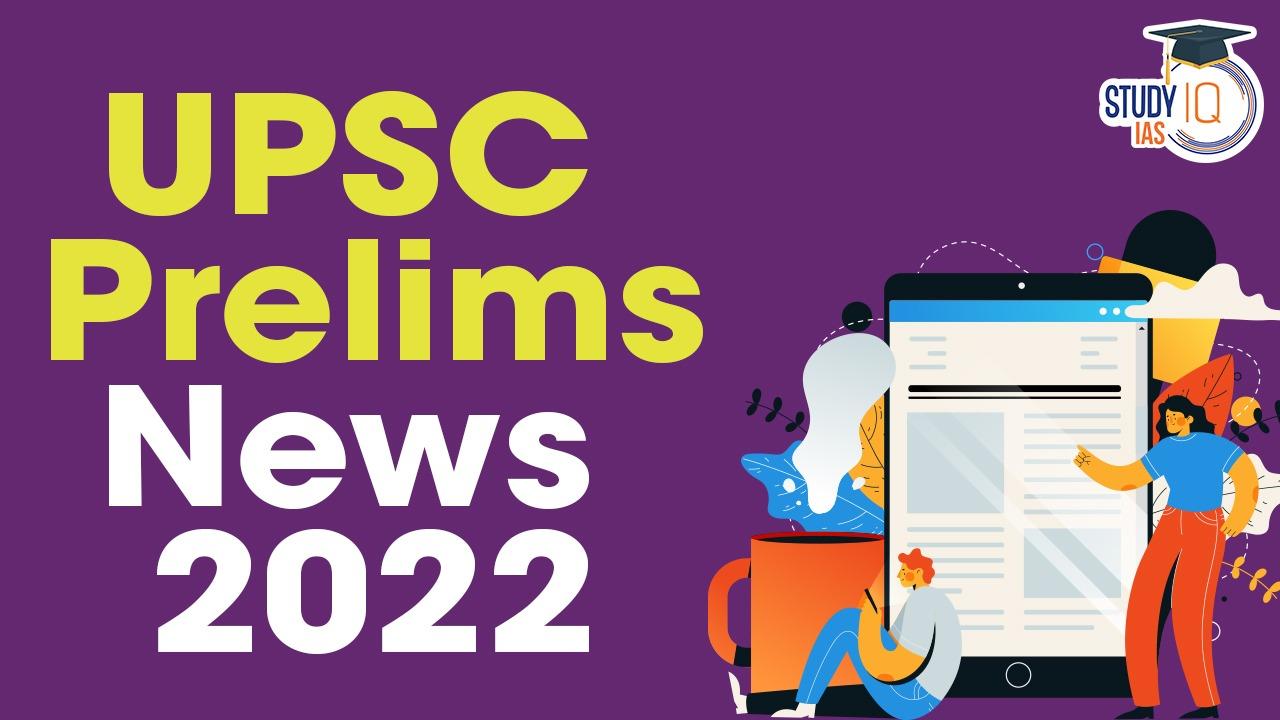UPSC Prelims News of 12th September 2022
Cyborg Cockroaches
Context: An international team of researchers have developed a system that can create Cyborg Cockroaches.
About the Development
- Cyborg cockroaches are part insect and part machine. Their movements are controlled by tiny integrated circuits.
- Researchers used Madagascar cockroaches, which are the largest species Okayof cockroaches, for developing cyborgs.
- Scientists designed the system to be rechargeable, by powering it with a super thin 0.004 mm solar cell module that was installed on the cockroach’s abdomen.
- The battery system on the insects ensured that the cockroach can be controlled for long periods of time.
- Working:
- Pressing a button sends electrical impulses to the sensory organs attached to the abdomens of the insects.
- The shock forces the insect to move left or right.
Applications:
- Conducting surveillance in procedures like urban search and rescue
- Environmental monitoring
- Inspection of areas dangerous to humans

Taragiri
Context: ‘Taragiri’, the third stealth frigate of project 17A was launched by Mazagon Dock Shipbuilders Ltd. (MDL) in Mumbai.
About:
- It is named after a hill range in Himalayas located at Garhwal.
- The frigate is designed by the Indian Navy’s in-house design organization, the Bureau of Naval Design.
About Project 17A:
- The coveted ‘Project 17A’ was cleared by the government in 2015.
- It involves the building of seven stealth frigates at an estimated cost of Rs 50,000 crore.
- These frigates will come armed with advanced state-of-the-art sensors and boast of top-notch stealth features.
- They will represent the most advanced class of major surface warships for the Indian Navy in a decade, also featuring BrahMos supersonic surface-to-surface missiles.
- Stealth frigate launched so far under the Project 17A:
- Himgiri,
- Udaygiri
- Taragiri
UNESCO Global Network of Learning Cities
Context: Warangal of Telangana and Nilambur, Thrissur of Kerala have joined the UNESCO Global Network of Learning Cities (GNLC).
More on the News:
- These three Indian cities are among the 77 cities from 44 countries which have joined the GNLC.
- The 77 new members bring the total number of cities within the UNESCO GNLC to 294 in 76 countries.
About UNESCO GNLC
- It is an international network consisting of cities that successfully promote lifelong learning across their communities.
- It was launched in 2013 by the UNESCO Institute for Lifelong Learning.
- The key objective of UNESCO GNLC was to promote social cohesion, economic development, and sustainability in urban areas.
- The Network supports the achievement of all seventeen SDGs SDG 4 and SDG 11.
What is a learning city?
- UNESCO defines a learning city as a city that
- Effectively mobilizes its resources in every sector to promote inclusive learning from basic to higher education.
- Revitalizes learning in families and communities.
- Facilitates learning for and in the workplace.
- Extends the use of modern learning technologies.
- Enhances quality and excellence in learning; and
- Fosters a culture of learning throughout life.





















 WhatsApp
WhatsApp